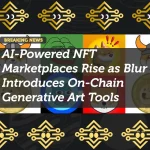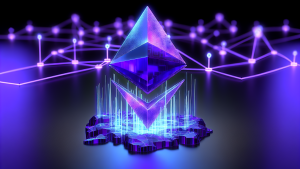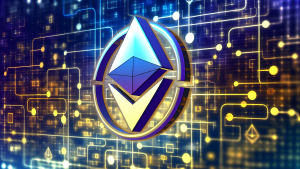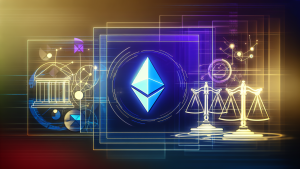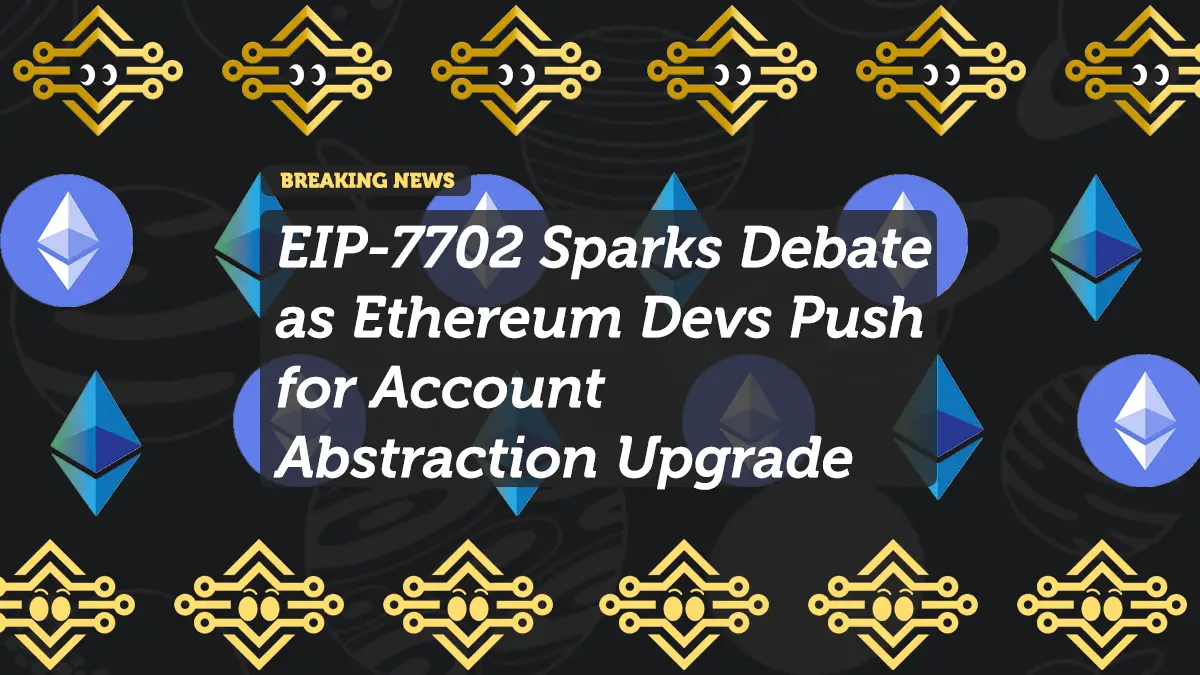
EIP-7702 Sparks Debate as Ethereum Devs Push for Account Abstraction Upgrade
The Ethereum account abstraction movement has taken a major step forward with the introduction of EIP-7702. Proposed by Ethereum co-founder Vitalik Buterin and several core developers, this upgrade aims to make smart contract-based accounts the standard on Ethereum.
This change would allow for more flexible wallet designs, including social recovery, batched transactions, and gasless interactions—features that have long been missing from traditional externally owned accounts (EOAs).
What Is EIP-7702 and Why Does It Matter?
EIP-7702 introduces a new transaction type that allows EOAs to temporarily act like smart contracts during execution. This paves the way for native support of account abstraction without requiring a full chain rewrite.
In practice, this means users could:
- Set up wallets that recover via trusted guardians instead of seed phrases
- Pay gas fees using tokens other than ETH
- Execute multiple actions in a single transaction
These improvements significantly enhance usability and accessibility, especially for new users unfamiliar with blockchain complexities.
Developer Support Grows Despite Concerns
While many developers welcome the Ethereum account abstraction shift, some concerns remain. Critics argue that implementing EIP-7702 could increase network complexity and potentially slow down transaction processing.
However, supporters counter that these upgrades are necessary to compete with newer blockchains like zkSync, StarkNet, and Solana, which already offer advanced wallet features out-of-the-box.
Thus, EIP-7702 represents not just a technical evolution but also a strategic move to keep Ethereum competitive in the next phase of Web3 adoption.
Real-World Use Cases Begin to Take Shape
Several wallet providers and dApps have already begun experimenting with early implementations of account abstraction. Projects like Argent, Safe, and Biconomy are leading the charge by integrating custom smart contract wallets into their platforms.
With EIP-7702, these innovations can become standardized across the entire Ethereum ecosystem. Therefore, we may soon see widespread adoption of gasless transactions, multi-signature security, and programmable user experiences.
Final Thoughts: A Major Step Toward Web3 Mass Adoption
The Ethereum account abstraction movement is no longer theoretical—it’s becoming reality. With EIP-7702 under active discussion, Ethereum is positioning itself as a leader in user-centric blockchain design.
If implemented successfully, this upgrade could remove one of the biggest barriers to entry in crypto: wallet complexity. As a result, Ethereum may be on the verge of its most significant UX overhaul yet.









